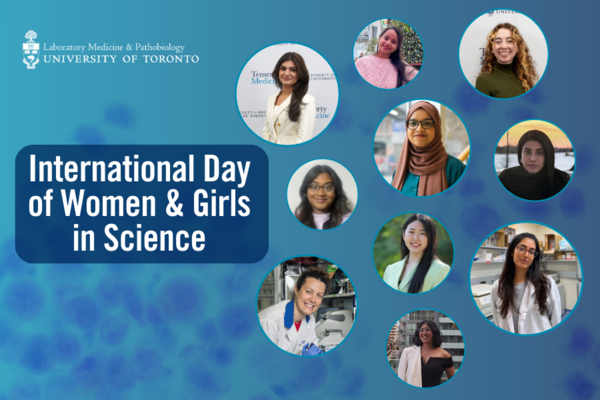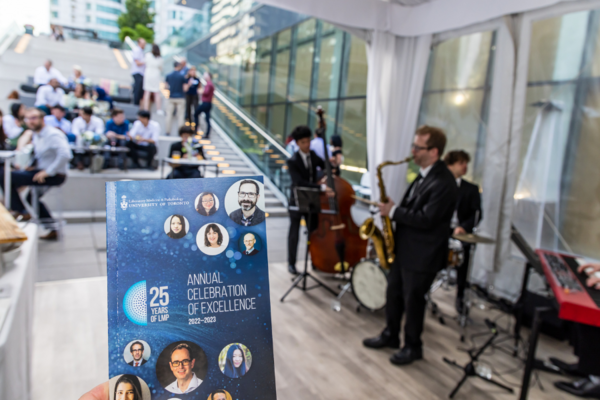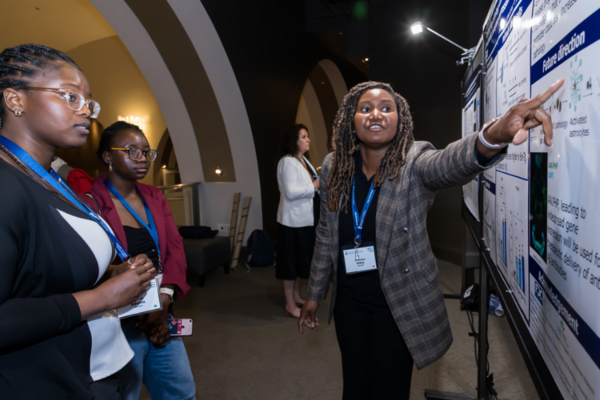Celebrating International Day for Women in Science 2023 at LMP
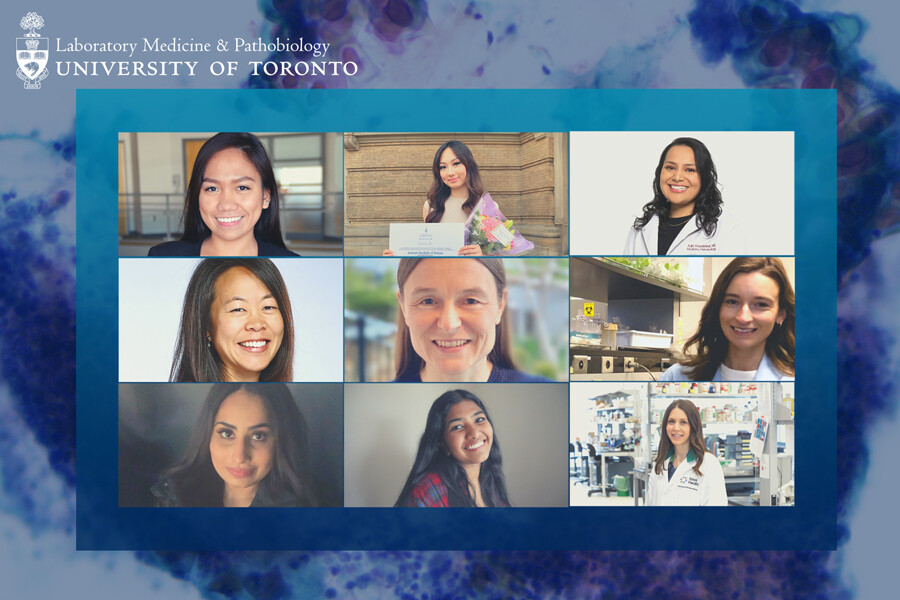
The United Nations General Assembly designated February 11th as International Day for Women and Girls in Science to strive towards gender equality for women and girls pursuing STEM-related fields.
We reached out to some of the amazing women in the Department of Laboratory Medicine and Pathobiology to find out why they love STEM and what advice they have for women looking to pursue a career in science.

Geil Astorga
MHSc student in the Translational Research Program
What is your focus in LMP and why do you do it?
My team’s capstone project is focused on Sickle Cell Disease, particularly in supporting youth who are transitioning from pediatric to adult healthcare. Engaging with youth, caregivers and parents, individuals with lived experience and healthcare professionals, our goal is to co-design an intervention to help youth with Sickle Cell Disease become transition ready.
Aside from my capstone project, I have been involved in different communications and knowledge translation (KT) initiatives related to childhood disability research, developmental services, and social determinants of health. What I love about the science I do right now is having the opportunity to combine my background in strategic communications, KT and marketing, to translate knowledge into meaningful tools, resources and interventions that will help patients. I enjoy being part of processes and developments that move findings into real-world applications. For instance, a huge project I'm part of right now is CanTreatCOVID, an adaptive platform trial evaluating the effectiveness of COVID medications to reduce symptoms faster and prevent long COVID. I enjoy co-leading the Recruitment and Communications Committee, engaging with almost 25 patient partners from different walks of life, and collaborating with a diverse team of professionals.
Why STEM?
I have an Honours degree in Communications and never thought I would be working in Science when I started my undergraduate studies. My thinking changed when I first got a summer job as a Communications Assistant in a health science research center. I was able to be a part of projects that make a difference in people's lives. I continued to work in health science research offering my skills and perspective as a Communications professional. Who knew social media posts could increase research impact? Or effectively designing an annual report could help fund more studies? Or writing plain language summaries could engage more patient partners? I wanted to take my work a step further, and that's why I decided to pursue a Master's degree in Translational Research. All of this wouldn't have been possible without the supportive researchers, mentors, and staff I've worked with throughout these years—which is also one of the reasons why I stayed in the field.
What advice do you have for women and girls interested in STEM?
Follow your curiosity. Girls and women often face unrealistic expectations, and your career journey doesn't have to add up to them. It's okay not to have everything planned at the outset. Sometimes the uncertainties about where your skills and interests will take you make working life interesting. My advice is to find your "why." Staying true to your motivations helps you keep moving forward. When you're focused on your purpose, eventually, you will notice things are working out. Find mentors and support systems that will guide you along the way. Continue learning, chasing opportunities, and most importantly, continue being curious!

Lauren Joe
MSc student in the lab of Dr. Janice Robertson, Tanz-Centre for Research in Neurodegenerative Diseases (Tanz-CRND) at the Krembil Research Institute
What is your focus in LMP and why do you do it?
My research is focused on Amyotrophic Lateral Sclerosis (ALS); a neurodegenerative disease caused by the loss of motor neurons in the brain and spinal cord. I am investigating how specific genes and proteins linked with ALS, cause disease.
I love how the science I’m doing is highly translational between laboratory practice, basic scientific knowledge, and medical practice. With my research, I strive to advance the field of biomedical science and uncover more knowledge about ALS, while simultaneously informing on potential therapeutic strategies for ALS. I hope to alleviate any pain for those affected by ALS.
Why STEM?
I first discovered my interest in science, and specifically biology, in high school. As I progressed through my undergraduate studies, I found a passion for neuroscience and conducting wet lab work. I loved brainstorming questions and trying to find ways to answer my questions. My academic journey helped me realize my research interests to then seek out research opportunities in undergrad and pursue a career in neuroscience.
What advice do you have for women and girls interested in STEM?
Failure is part of success! We’re all human and are bound to make mistakes, and it's what we learn from our mistakes that help us improve for next time.
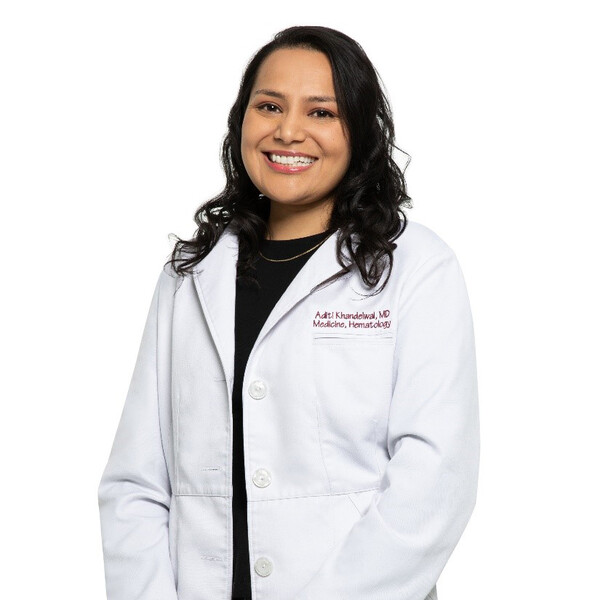
Aditi Khandelwal, MSc, MDCM, FRCPC, DRCPSC
Temporary Transfusion Medicine Staff, Sunnybrook Health Sciences Centre. LMP Transfusion Medicine Alumni.
What is your focus in LMP and why do you do it?
I am an Adult Haematologist and Transfusion specialist with a Masters of Science in Systems Leadership and Innovation. In LMP, I work as an educator for post-graduate trainees as well as temporary staff in Transfusion Medicine laboratories. In my position at Canadian Blood Services, my focus is in informing and leading system level changes in the national blood system, ensuring precise and accurate application of scientific evidence and with a focus on creating an equitable and inclusive blood system. In this role, I work with a large group of multi-talented experts and help maintain a safe and sustainable blood supply. This means, developing an understanding of current science, culture, politics and social change; discussing concerns and issues around the blood supply with stakeholders, help develop learning tools and shift culture within the blood system, communicate with people within and outside the blood operator and implement changes. My research focus is on maintenance of donor safety and wellbeing, implementation strategies as well as on issues of equity and inclusion. I also work with projects.
It is a real privilege to be able to inform changes at a national level that improve the blood system for all Canadians. I am convinced that we need to ensure a blood system that serves all Canadians, is safe and importantly sustainable for the future.
Why STEM?
I spent my childhood in India and immigrated to Canada at the age of 12 years. My earliest and fondest memories are those of me sitting with my grandfather, a prominent inorganic chemist and now retired professor, while he invited scientists to our home from around the world. Observing their friendly discourse on all matters, including science and culture had a profound impact on me – it instilled a desire to seek my own adventures in scientific enquiry. During middle school, my walk home often involved a detour to my grandfather lectures at the university. I waited for him to finish so we could go enjoy some treats at the bakery. I saw in him this passion for teaching and learning, that was infectious. At times, I had the opportunity to visit his laboratory and meet other researchers who had fascinating stories about their own quests in science. While growing up, my parents and grandparents instilled the value of creativity and perseverance – quite contrary to the approach I encountered in the grade school I attended. Despite getting into trouble at school for questioning my teachers and disagreeing with their insistence on memorization of facts rather than understanding of concepts, I found a supportive environment at home that fostered my creativity. Fortunately, my teachers in Canada further helped foster my love of science and advocate for opportunities I would not have otherwise had. Desire to use the power of science to advocate for others helped me find my way into health care.
What advice do you have for women and girls interested in STEM?
Find any path in inquiry that excites you, brings you joy and pursue it. Ask questions, ask for help, because nothing wonderful ever happens in a vacuum and re-frame any failures you encounter as learning opportunities. Choose to do things in the way that feels the best to you – there is usually more than one awesome way to approach any issue. Your well-being and happiness are important, find ways of doing activities you enjoy. Be kind to yourself.
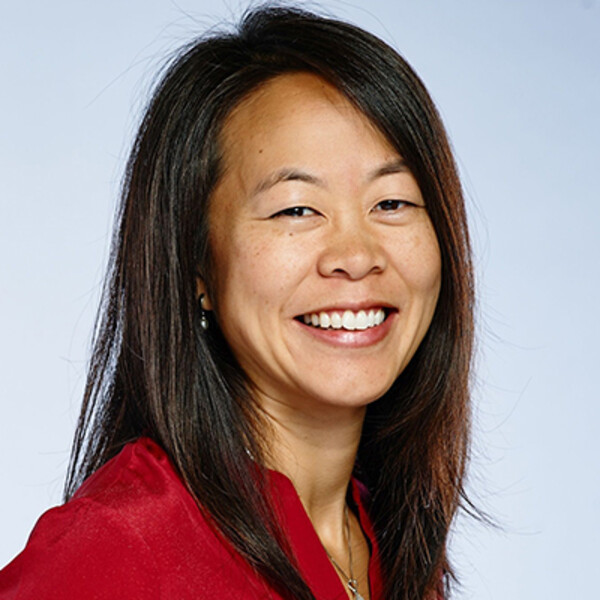
Yulia Lin, MD, FRCPC
Associate Professor, Department of Laboratory Medicine and Pathobiology
What is your focus in LMP and why do you do it?
I am a Clinician Teacher and Head of the Division of Transfusion Medicine and Tissue Bank at Sunnybrook Health Sciences Centre and do a combination of teaching, quality improvement and research.
I love to teach about transfusion to those physicians and trainees who are not in transfusion.
Why STEM?
I got involved in healthcare because I loved problem-solving and making important contributions to improving care.
What advice do you have for women and girls interested in STEM?
Go for it! It is an amazing feeling to see something you have worked on put into place to make the system better!
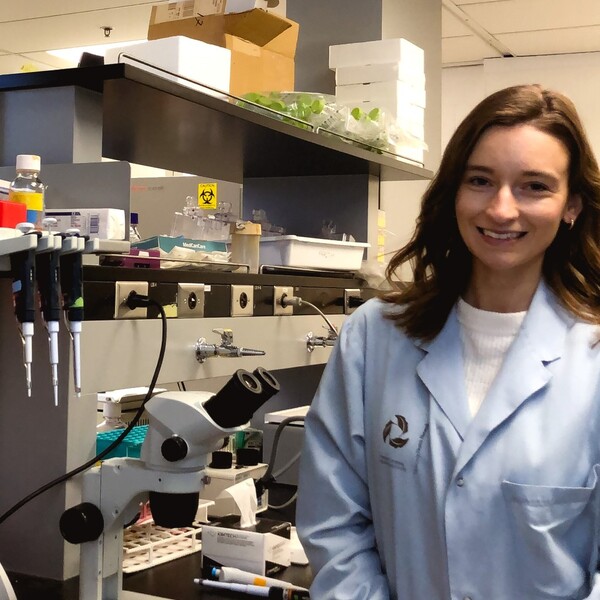
Chanele Polenz, PhD
Research Trainee, Advanced Diagnostics
What is your focus in LMP and why do you do it?
I started my MSc in LMP in 2015, transferred to a PhD in 2017, and recently passed my PhD defense in December 2022. I work with Dr. Myron Cybulsky, with a focus on cardiovascular biology.
I have always been attracted to the complexity of biology; research is a lot like solving a puzzle - you continually acquire different pieces of the story, and you constantly have to re-evaluate how these pieces come together to form a greater picture. At times it can be frustrating until you come up with an experiment or idea that yields that final piece of the puzzle bringing everything together. It is incredibly satisfying when you are in the final stages of putting the story together - even if it isn't what you had envisioned at the start of the project. My favourite part is getting to share my work at conferences and inspiring the next generation of researchers through teaching and outreach.
Why STEM?
I completed my BSc at the University of Waterloo, studying Biochemistry. Through the co-op program, I was exposed to science through a variety of lenses: everything from industry, government, basic research, and business. In my upper years, I started volunteering (and later did a 4th year thesis project) in a mitochondrial research lab with a really fantastic supervisor. She encouraged my curiosity and gave me the skillset and confidence to pursue research in graduate school (we still talk to this day - she has been an instrumental mentor in my development as a scientist!).
What advice do you have for women and girls interested in STEM?
Science can be tough, but that doesn't mean you aren't capable. Surround yourself with supportive mentors and peers - people who will be your biggest cheerleaders, advice-givers, and advocates through all the ups and downs of research. Celebrate the victories (even the small ones!), and don't forget to look back every once in a while to see how far you've come and how much you've grown.
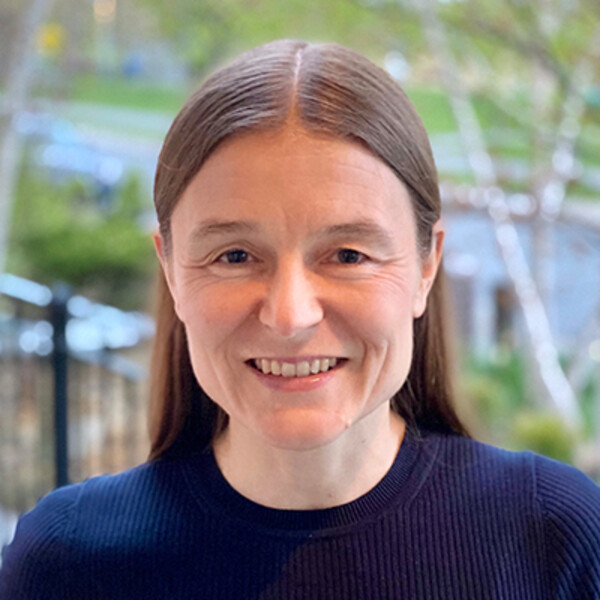
Susan Poutanen, MD, MPH, FRCPC
Associate Professor, Department of Laboratory Medicine and Pathobiology
What is your focus in LMP and why do you do it?
My broad research interests include; the epidemiology and detection of antimicrobial resistance; the use of fecal microbiota transplantation and phage therapy as treatments for infection; the preparedness and detection of emerging infectious disease threats; and the optimization of microbiology laboratory practices using point-of-care tests, rapid diagnostics, automation, and artificial intelligence.
I love that there are so many opportunities to have an impact on patients’ lives. Advances in technology both hardware and software have completely changed the paradigm as to how clinical microbiology laboratories function and have allowed high-quality laboratory tests to be moved to the patient’s points of care and to their homes. This is an exciting time to be in clinical microbiology and infectious diseases.
Why STEM?
I was given an opportunity in high school to join a university lab for the summer and jumped at the opportunity to explore microbiology which was an area not covered in my high school curriculum. I loved everything about my experience and have been hooked on microbiology ever since. I was introduced to medicine through my mother who is a retired public health physician. When I found there was an option to specialize in infectious disease and microbiology after medical school, I knew this was the field for me.
What advice do you have for women and girls interested in STEM?
STEM is an amazing field with so many options to explore whether it be in the basic sciences discovering new findings, or in the development of new technologies, or in streaming their application in medicine or other fields. Reach out to established people in the field and ask for opportunities to talk, shadow, volunteer, or get involved in other ways to get exposed to their field. Be curious, ask questions, find your passion, find a mentor, and give it your all while being sure to also take care of yourself.

Hania Qamar
MSc candidate, Krembil Research Institute at The Tanz Centre for Research in Neurodegenerative Diseases
What is your focus in LMP and why do you do it?
My research focuses on a fatal neurodegenerative disease called Progressive Supranuclear Palsy (PSP).
I cherish the field of research as it offers an environment where one can practice scientific curiosity and apply theoretical knowledge.
Why STEM?
I had a natural inclination towards the field of science from an early age. I garnered particular interest in the field of neuroscience, based on the mere complexity of the brain and its ability to modulate the rest of the body. This oriented me towards the Neuroscience Specialist undergraduate program at UofT and currently, as an MSc student, I have the privilege to be conducting research in the field of neurodegenerative diseases.
What advice do you have for women and girls interested in STEM?
Allow your strengths and vision to guide your career-related decisions. Seek opportunities that will help you hone your skills and always apply yourself. Also, avail a variety of different opportunities, oftentimes novel situations ignite potential and unveil one's true vocation.

Abitha Suthakaran
MHSc student in the Translational Research Program
What is your focus in LMP and why do you do it?
In the past, I’ve had the privilege of working on a variety of clinical research projects, such as longitudinal studies on borderline personality disorder and evidence-based reviews on traumatic brain injury. With my program in LMP, I’ve been learning how to create innovative solutions to address gaps in the fields of healthcare I am interested in. For example, I am passionate about improving health outcomes for minority and vulnerable populations (e.g., BIPOC, LGTBQ+, neurodivergent), and my program has allowed me to explore this. I am currently collaborating on a group project to create a web platform that matches autistic individuals to autism-specific mental health professionals and services in their area. I also recently completed an opinion editorial on why all obstetrician-gynecologists should have mandatory training on providing transgender-specific care.
For someone who has mastered rote memorization and has done bench science their entire life, I believe TRP continually challenges me to think outside of the box. After all, the program’s favourite phrase is “embrace ambiguity.” With every course and class project, I have had the opportunity to explore a new field of research and work with peers with different areas of expertise. All of this has helped me be more creative and open-minded, two skills that will serve me well regardless of what career path I choose.
Why STEM?
My love for science started with forensics (I blame the show “Forensic Files'' for that). One day, my peculiar childhood fascination with autopsies morphed into an equally odd but more general interest in diseases. Fast forward a few years, and I completed my honours specialization in pathology with a minor in psychology. What drew me to healthcare specifically was its impact – I felt that my degree was completely and utterly useless if I couldn’t help someone with it. The best way to do that is to translate my knowledge into tangible solutions for patient problems, which is what I do in TRP.
What advice do you have for women and girls interested in STEM?
There’s a well-documented phenomenon in psychology – stereotype threat – that states that negative assumptions or stereotypes about a particular group of people can affect their behaviour or performance. For instance, telling women that men are better than women at math can significantly decrease their scores on math tests. So, my advice is to not let gender norms or stereotypes limit you! It’s certainly not easy (we do, in fact, live in a patriarchy), but the first step to pursuing anything should be to believe in yourself wholly.
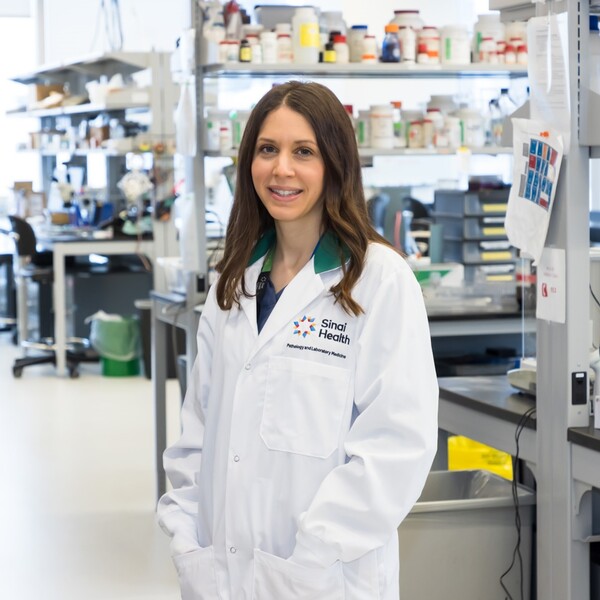
Jennifer Taher, PhD, FCACB
Assistant Professor, Department for Laboratory Medicine and Pathobiology
What is your focus in LMP and why do you do it?
I was a student at LMP for 8 years, completing both a PhD and a clinical biochemistry fellowship. Now I am an assistant professor at LMP where I teach at the undergraduate, graduate and post-graduate levels. My teaching focuses on diabetes, lipid metabolism, or clinical biochemistry. My research lab (GENCOV) is aimed at understanding the immune response to Covid-19. As a clinical biochemist, I also act as a liaison between clinicians and the core laboratory at Mount Sinai hospital to evaluate patient health and manage patient outcomes.
Why STEM?
Science has always inspired me because the impact of discovery can be life-changing.
What advice do you have for women and girls interested in STEM?
Surround yourself with people and things that inspire you, and you will naturally succeed.

